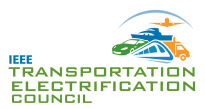Charging Standards
The following is a list of current standards (as of early 2022) concerning the various aspects of EV charging, connected and wireless.
More work is needed, first to adjust to an ever-changing technology, and second and importantly to promote interoperability, simplicity,
and safe operation.
| Standard | EVSE Type | Focus | Description |
| UL 2594, 2nd edition 2016, CSA 22.2 #280-13, NMX-J-677-ANCE-2013 | AC | Safety | Tri-national Standard For Electric Vehicle Supply Equipment, harmonized for Canada, the U.S. and Mexico |
| IEC 62752, 1.1 edition 2018 | AC | EV Charging Cables | In-cable control and protection devices (IC-CPDs) for mode 2 charging of electric road vehicles |
| SAE J3072 | AC | Grid Interconnection | Interconnection requirements for a utility-interactive inverter system which is integrated into a plug-in electric vehicle (PEV) and connects in parallel with an electric power system (EPS) by way of conductively-coupled, electric vehicle supply equipment (EVSE). This standard also defines the communication between the PEV and the EVSE required for the PEV onboard inverter to be configured and authorized by the EVSE for discharging at a site. The requirements herein are intended to be used in conjunction with IEEE 1547 Standard for Interconnecting Distributed Resources with Electric Power Systems and IEEE 1547.1 Standard for Conformance Test Procedures for Equipment Interconnecting Distributed Resources with Electric Power Systems. |
| SAE J2847/3_202103 | AC | Communication for Plug-in Vehicles as a Distributed Energy Source: This document applies to a plug-in electric vehicle (PEV) which is equipped with an onboard inverter and communicates using IEEE 2030.5-2018. It is a supplement to the SEP2 standard, which supports the use cases defined by SAE J2836/3. It provides guidance for the use of the SEP2 distributed energy resource function set with a PEV. It also provides guidance for the use of the SEP2 flow reservation function set, when used for discharging. It is not intended to be a comprehensive guide to the use of SEP2 in a PEV. | |
| IEC 61851-1, 3rd edition 2017 | AC, DC | Safety and Functional | Electric vehicle conductive charging system - Part 1: General requirements; Applies to EV supply equipment for charging electric road vehicles, with a rated supply voltage up to 1 000 V AC or up to 1 500 V DC and a rated output voltage up to 1 000 V AC or up to 1 500 V DC. |
| SAEJ1772, IEC 62196 | AC, DC | Safety and Functional | General physical, electrical, functional and performance requirements to facilitate conductive charging of EV/PHEV vehicles in North America. This document defines a common EV/PHEV and supply equipment vehicle conductive charging method including operational requirements and the functional and dimensional requirements for the vehicle inlet and mating connector. |
| CharIN-CCS | AC, DC | Interoperability & Conformance | interoperability based on the Combined Charging System (CCS) |
| SAE J2894/1-201901 | AC, DC | Grid Interconnection | Power Quality Requirements for Plug-In Electric Vehicle Chargers: The intent of this document is to develop a recommended practice for PEV chargers, whether on-board or off-board the vehicle, that will enable equipment manufacturers, vehicle manufacturers, electric utilities, and others to make reasonable design decisions regarding power quality. The three main purposes are as follows:
|
| SAE J2894/2_201503 | AC, DC | Grid Interconnection | Power Quality Test Procedures for Plug-In Electric Vehicle Chargers: This recommended practice provides test procedures for evaluating PEV chargers for the parameters established in SAE J2894/1, Power Quality Requirements for Plug-In Electric Vehicle Chargers. |
| ISO 15118 | AC, DC, Wireless | Interoperability & Conformance | Vehicle to grid communication interface Part 2: Network and application protocol requirements Part 3: Physical and data link layer requirements |
| UL 2202, 2nd edition 2009 | DC | Safety | Standard for Safety for Electric Vehicle (EV) Charging System Equipment |
| CSA 22.2 #107.1-16, 2016 Clause 16 | DC | Safety | This Standard applies to power conversion equipment (PCE) that
|
| IEC 61851-23, 1st edition 2014 | DC | Safety and Functional | DC electric vehicle charging station |
| IEC 61851-24 Ed. 1.0 b:2014 | DC | Interoperability & Conformance | Electric vehicle conductive charging system - Part 24: Digital communication between a d.c. EV charging station and an electric vehicle for control of d.c. charging |
| CHAdeMO | DC | Interoperability & Conformance | DC charging standard for electric vehicles. It enables seamless communication between the car and the charger. It is developed by CHAdeMO Association, which is also tasked with certification, ensuring compatibility between the car and the charger. |
| IEEE 2030.1.1-2021 | DC | Interoperability & Conformance | Technical Specifications of a DC Quick and Bi-directional Charger for Use with Electric Vehicles |
| IEEE 2030.1.2 | DC | Interoperability & Conformance | Standard Technical Specifications for Ultra-High-Power Electric Vehicle Chargers (500 kW and higher): requirements for the design of safe, reliable, and compact ultra-high-power DC chargers for electric vehicles. The standard will allow power ratings of 500 kW or more, enable dynamic current control and bi-directional charging (for vehicle-to-home, vehicle-to-building, and vehicle-to-grid power transfers), be backward compatible with existing DC fast charging standards (IEEE 2030.1.1, CHAdeMO 1.0, 2.0, and the upcoming 3.0 version, and potentially other standards such as GB/T 20234 |
| SAE J3105_202001 | DC | Interoperability & Conformance | General physical, electrical, functional, testing, and performance requirements for conductive power transfer, primarily for vehicles using a conductive ACD connection capable of transferring DC power. It defines conductive power transfer methods, including the infrastructure electrical contact interface, the vehicle connection interface, the electrical characteristics of the DC supply, and the communication system. It also covers the functional and dimensional requirements for the vehicle connection interface and supply equipment interface. There are also sub-documents that are identified by SAE J3105/1, SAE J3105/2, and SAE J3105/3. These will be specific requirements for a specific interface defined in the sub-document. |
| OCPP/OSCP | NA | Interoperability & Conformance | Open standards for the adoption of the Open Charge Point Protocol (OCPP) and the Open Smart Charging Protocol (OSCP). |
| IEC 61980-1 Ed. 2.0 b:2020 | Wireless | Safety and Functional | Electric vehicle wireless power transfer (WPT) systems - Part 1: General requirements |
| UL OOI 2750 (Outline of Investigation), 1st edition 2020 | Wireless | Safety | Wireless Power Transfer Equipment for Electric Vehicles |
| CSA 22.2, #61980-1:16 | Wireless | Safety | Electric vehicle wireless power transfer systems |
Standards Committee Chair

Louis Gullo
Standards Committee Chair


